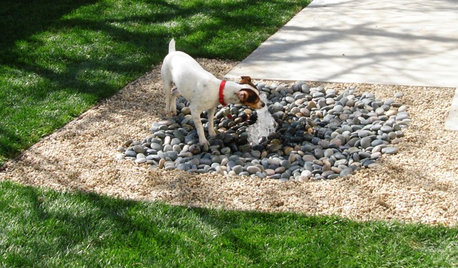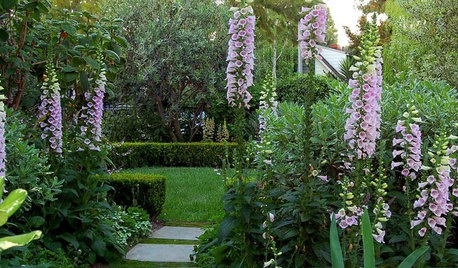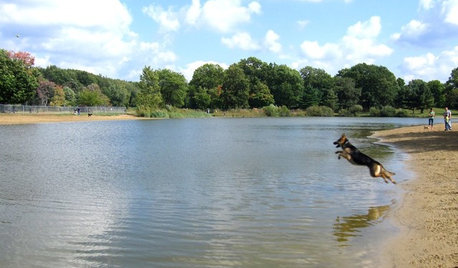Safe plants for dogs
socks
13 years ago
Related Stories

LIFEHow to Keep Your Pets Safe During the Holidays
To avoid an unwanted trip to the vet, be aware of these holiday-related hazards for dogs and cats
Full Story
PATIOSPatio Details: Dog Won’t Trample the Plants With This Design
An Asian-inspired backyard redo adds clean lines, a new water feature and a sense of spaciousness — with room for a large beloved dog
Full Story
LIFE10 Ways to Keep Your Home Safe While You're Traveling
Set off on your trip with peace of mind, knowing you've taken the right steps toward keeping your home secure
Full Story
GARDENING AND LANDSCAPINGTake a Winter Walk on the Safe Side
Learn how to handle snow, ice and other cold-weather landscape factors to minimize falls and damage
Full Story
MOST POPULAR8 Backyard Ideas to Delight Your Dog
Cue the joyous soundtrack. These pet-friendly landscape and garden ideas will keep your pooch safe, happy and well exercised outdoors
Full Story
PETSGarden Alert: 22 Plants to Keep Away From Pets
Avoid potential danger by keeping dogs and cats away from these landscaping and houseplant favorites
Full Story
PETSThe Crate Conundrum: A Safe Place for Your Pooch
Get ideas for a comfy den for your dog that works well with your space too
Full Story
COMMUNITYDesigned for Dogs: 5 Fantastic Dog Parks Across the U.S.
Let your favorite pooch run wild at one of these specially designed public spaces. Not close by? Learn how to start a dog park yourself
Full Story
PETS6 Ways to Help Your Dog and Landscape Play Nicely Together
Keep your prized plantings intact and your dog happy too, with this wisdom from an expert gardener and dog guardian
Full Story
GARDENING GUIDESCreate a Fire-Safe Garden — With Style
Defend your home against wildfire with a well-planned mix of plants, materials and open space
Full StoryMore Discussions






cindyb_va
debd18
Related Professionals
Charleston Architects & Building Designers · Corpus Christi Architects & Building Designers · St. Louis Furniture & Accessories · East Saint Louis Cabinets & Cabinetry · Lindenhurst Cabinets & Cabinetry · North Bay Shore Cabinets & Cabinetry · Everett Flooring Contractors · Greenville Flooring Contractors · Lacey Flooring Contractors · Oxford Flooring Contractors · Petaluma Flooring Contractors · South Lake Tahoe Flooring Contractors · South Plainfield Flooring Contractors · Swampscott Flooring Contractors · Atascocita Flooring ContractorsUser
socksOriginal Author
Bumblebeez SC Zone 7
mazer415
cindyb_va
socksOriginal Author
beegood_gw
Bumblebeez SC Zone 7
carmen_grower_2007